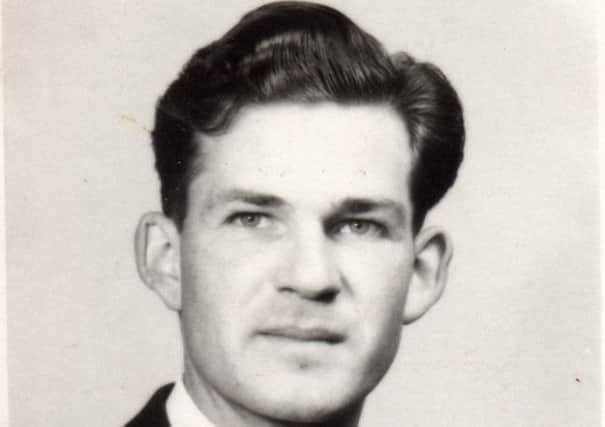Obituary: Stephen Metcalf, missionary


Stephen Metcalf had his life changed by a pair of running shoes. They didn’t look like much, those shoes: worn, sewn up where they’d torn, and wound round tightly with bits of salvaged string. Preferable, though, to his own flapping-soled rejects. “They may last you a few weeks,” said the balding, middle-aged man who proffered them one day in a Japanese civilian internment camp in China during the biting winter of 1944-1945. What made the gift remarkable was that the giver was Eric Liddell, the former Scottish rugby star and 400m gold medal winner at the 1924 Olympics.
The internal conflict between Liddell’s sporting prowess and his religious faith would form one of the story strands of the 1981 film Chariots of Fire. Since those events, he had thrown himself into missionary work in the poorest areas of China.
Advertisement
Hide AdAdvertisement
Hide AdHe continued this in captivity: teaching, preaching and reaching out to the children in the camp by organising races and other sporting events. To young Stephen, then 17 and himself a talented runner, Liddell seemed touched with grace, a quality that not only flowed through his actions (such as the gift of the shoes) but also glowed in his words.
The greatest challenge he faced in his life, Metcalf said, was Liddell’s exhortation that, rather than hate his Japanese jailers, he should pray for them. “When you hate, you are self-centred,” the Scotsman explained. “When you pray, you are God-centred. Praying changes your attitude. It is hard to hate those you pray for.”
A fortnight later, aged 43, Liddell died of a brain tumour brought on by overwork. As he shouldered his coffin at the funeral, Metcalf was wearing the shoes he had given him. Was this really a fitting end for so great a man, he anguished: buried in an obscure corner of a Japanese camp, his resting place marked only by a rough cross on which his name had been smeared in boot polish?
Metcalf vowed that if he survived the war, he would take Liddell at his word, and more. He wouldn’t only pray for the Japanese. He would devote his life to doing God’s work among them.
Stephen Arnold Metcalf, who has died aged 86, was born in Kunming in southern China. His parents were missionaries whose work had taken them to a secluded village a week’s walk from that city. There were no shops, just a monthly market. The local Lisu tribal people were animists who believed spirits resided in the woods, the hills, the stream from which they drew water. Nevertheless, Stephen remembered his infancy as a magical time of freedom. Boarding school, at six, came like banishment. As it might, being some 2,000km away, in the country’s north-east corner.
This was also, as chance would have it, the region that was later overrun by the Japanese army. Contrary to the general feeling about the barbarous invaders, Metcalf noted that the commander of his first internment camp was a decent man.
However, it was only through the influence of Liddell – at the second camp he was sent to, in Weifang province – that he learnt to love his enemy, and felt prompted to make the resolution that would dictate the rest of his life. After liberation came in 1945, he hitched his way to Kunming, where he was reunited with his parents. The family moved to Australia for a time. There, in due course, Metcalf joined the Overseas Missionary Fellowship International and pushed for a posting in Japan. In 1952, he got it.
Like his father before him, it was through mission work that he met his future wife. Not that Evelyn Robinson, a young Irishwoman who worked at a mission at Hirosaki in the north, was soon won over. When he wrote suggesting they marry, her reply was “to the point”, he recalled. She said no.
Advertisement
Hide AdAdvertisement
Hide AdBut he couldn’t relinquish his mental cameo of her, with her “curls of lustrous red-brown hair”, and three months later he wrote to her again. Alas, Evelyn’s second reply was “as strong and concise as the first”. Moreover, she added that she would appreciate it if he let the matter rest.
The lovelorn missionary self-medicated with work. And four months later God, or Providence, or what you will, was moved to intervene. Exhausted, Metcalf was setting off on a holiday by train when a snowstorm blocked his route.
So instead, albeit apprehensively, he diverted to Hirosaki. Evelyn was overjoyed to see him. Earlier in the day, she said, she’d found herself thinking about him hard. She had prayed, asking for a sign, and ended by resolving that, if he were to turn up on her doorstep that very day, she would marry him. They tied the knot soon afterwards and never broke it.
For four decades, Evelyn and Stephen Metcalf worked together in Japan, “planting” – which is to say setting up – new mission churches, until his retirement in 1990.
They then moved to Tooting in south London, where for 15 years Metcalf served as head of the London Japanese Christian Fellowship. His wife survives him, as do their five children.